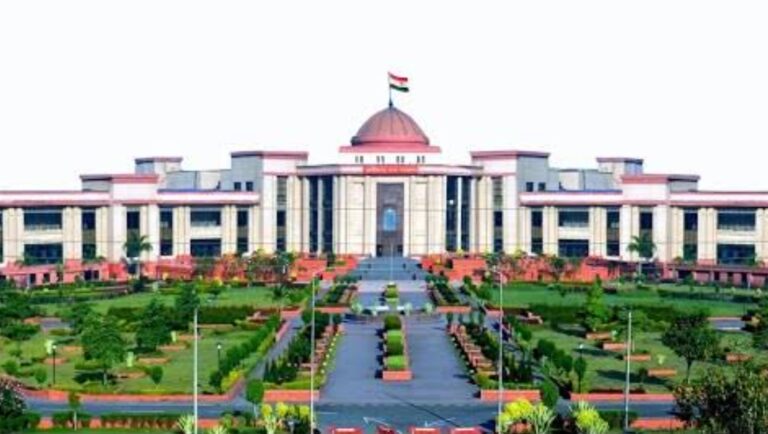In a significant judgment, the Chhattisgarh High Court has ruled that disallowance under Section 143(1)(a) of the Income Tax Act, 1961 cannot be applied when the issue in question is pending adjudication before the Supreme Court. The Division Bench, comprising Justice Sanjay K. Agrawal and Justice Deepak Kumar Tiwari, made this observation in the case of Raj Kumar Bothra v. Deputy Commissioner of Income Tax [TAXC No. 56 of 2025], decided on May 8, 2025.
Key Issue: Disallowance of Deduction Under Section 36(1)(va)
The matter revolved around the disallowance of a claim pertaining to delayed payment of employees’ contributions towards EPF and ESI. The Assessing Officer (AO), while processing the assessee’s return for Assessment Year 2020-21 under Section 143(1)(a), disallowed Rs. 28,21,065 citing delayed deposit of employees’ contributions to Employees’ Provident Fund (EPF) and Employees’ State Insurance (ESI), as per Section 36(1)(va) read with Section 2(24)(x).
The assessee, Raj Kumar Bothra, had declared a total income of Rs. 3,76,34,910 and paid tax amounting to Rs. 1,44,33,865. The Central Processing Centre (CPC) issued an intimation order dated 16.12.2021 under Section 143(1)(a), disallowing the said deduction. Aggrieved, the assessee appealed to the Commissioner of Income Tax (Appeals), and subsequently to the Income Tax Appellate Tribunal (ITAT), both of which upheld the AO’s order. The assessee then challenged the ruling before the Chhattisgarh High Court under Section 260A.
Legal Context: Checkmate Services Judgment Pending
The assessee argued that, as on the date of the intimation order (16.12.2021), the issue regarding the deductibility of employees’ contributions under Section 36(1)(va) was under active consideration before the Supreme Court in the case of Checkmate Services Pvt. Ltd. v. CIT [(2023) 6 SCC 451]. The apex court had only clarified the law on October 12, 2022. Given that divergent views existed among various High Courts on this matter at the time, the issue was clearly debatable and not suitable for prima facie adjustment under Section 143(1)(a).
Court’s Observations: Debatable Issue Not Within Scope of 143(1)(a)
The High Court concurred with the assessee’s submission, emphasizing that the powers under Section 143(1)(a) are limited to making prima facie adjustments based on apparent errors in the return. Any issue involving complex legal interpretation or conflicting judicial opinions requires deeper scrutiny, which is possible only under Section 143(3).
The Court also noted that several High Courts — including those of Bombay, Delhi, Calcutta, Himachal Pradesh, and Gauhati — had previously ruled in favor of the assessee on this issue, while others like Kerala and Gujarat supported the Revenue. This divergence made the matter a contentious legal issue.
Crucially, the Court highlighted that the assessee had disclosed the details of delayed contributions in the audit report (Form 3CB, Column 20(b)) but did not classify them as disallowable, thereby further establishing the absence of a prima facie error.
Verdict: Adjustment Held Invalid
The Division Bench held that the AO should have initiated a regular assessment under Section 143(3) instead of making a summary adjustment under Section 143(1)(a). The Court remarked:
“The Assessing Officer has committed a grave legal error in processing the return under Section 143(1)(a), as the issue was highly debatable at the time and ultimately settled only in a later Supreme Court decision.”
The High Court set aside the disallowance made under Section 143(1)(a), as well as the appellate orders passed by the CIT (Appeals) and ITAT, thereby allowing the assessee’s appeal.
Key Takeaway
This ruling reinforces the principle that prima facie adjustments under Section 143(1)(a) must be limited to clear and undisputed errors. When an issue is subject to differing judicial interpretations or is sub judice before the Supreme Court, any disallowance must be carried out through detailed scrutiny under Section 143(3), not via summary processing.
Case Details:
- Case Title: Raj Kumar Bothra v. Deputy Commissioner of Income Tax
- Case Number: TAXC No. 56 of 2025
- Court: Chhattisgarh High Court
- Date of Judgment: 08/05/2025
For tax professionals and assessees, this judgment offers clarity on the limitations of Section 143(1)(a) and provides relief in cases involving contentious or pending legal issues.
